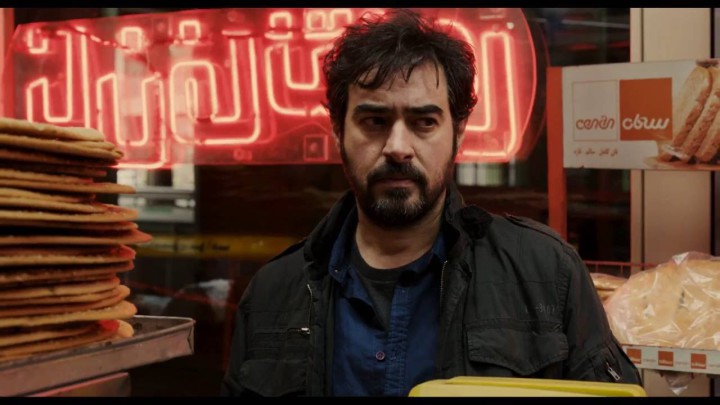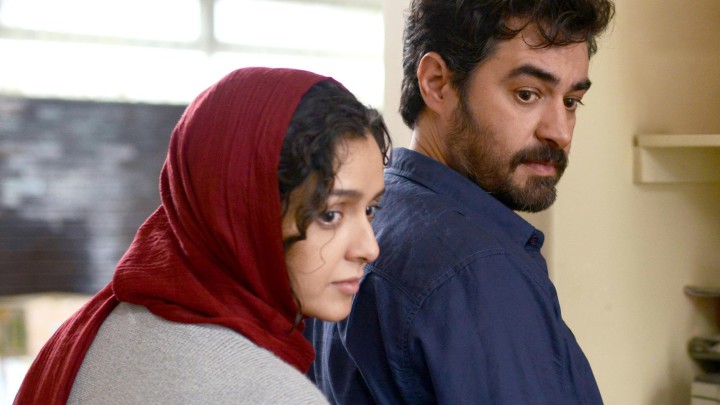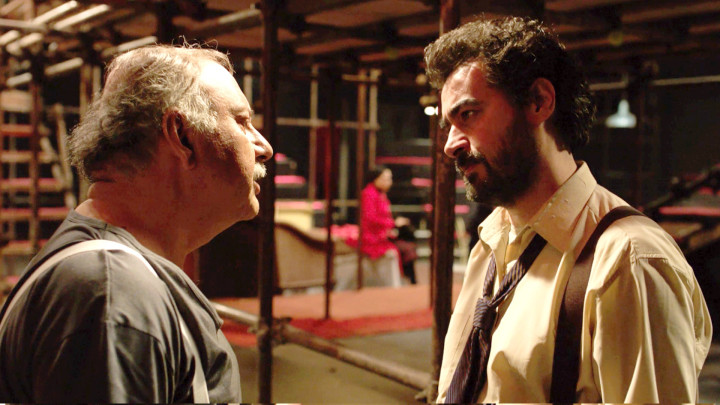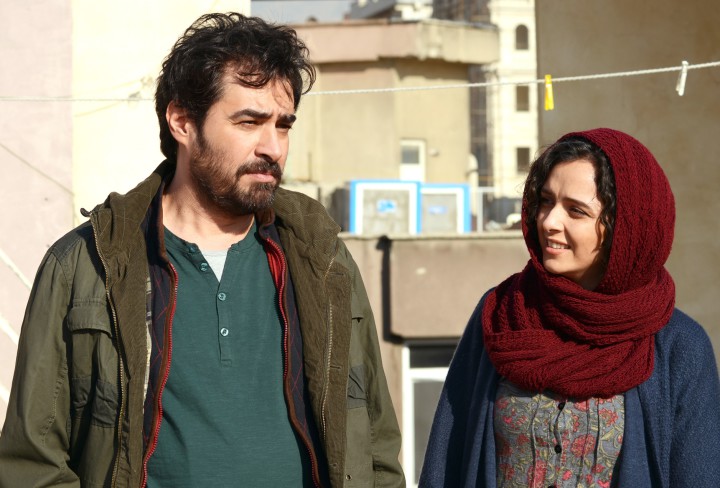Writer-director Asghar Farhadi has garnered a well-deserved reputation as one of the preeminent filmmakers of his native Iran, but has also justifiably garnered significant accolades around the world. As such, taking home his second Best Foreign Language Film Academy Award for The Salesman was, in some corners, a foregone conclusion. With films like his last Oscar-winner, A Separation, Farhadi has established his capacity to make thought provoking stories that are deeply personal while also elucidating profound cultural insights, and The Salesman is no exception.
The story follows thirty-something teacher and stage actor Emad Etesami (Shahab Hosseini), who is starring alongside his wife Rana (Taraneh Alidoosti) in a production of Arthur Miller’s Death of a Salesman. But things get substantially more complex when the couple are forced out of their apartment building, structurally undermined by neighboring construction, and move into a recently vacated flat suggested by a friend. It turns out that the previous tenant may have been a prostitute, and her clients didn’t necessarily get the memo about her relocation. This leads to a devastating assault on Rana, the extent of which is never fully revealed. Emad embarks on a quest for justice (or is it vengeance?) that drives the film’s narrative, and will leave the audience questioning what they’ve seen long after the credits roll.
Hosseini, who won the best actor prize at Cannes for his turn as Emad, is absolutely riveting, and Alidoosti is every inch his equal. Their performances drive the film, grounding it in an emotional realism that is unrelenting in its intensity. Farhadi accomplishes something few western directors would even attempt by allowing the audience to draw their own conclusions as to the actions — and their consequences — of the characters on screen, using the strictures of Iranian production guidelines to enhance his film, rather than limit it, by contributing a discieting sense of ambiguity to the symbolism he employs. A shot of the open door slowly swinging wider prior to Rana’s assault evokes the opening scenes of Fritz Lang’s M, in which an absence can convey menace far more effectively than any definite presence. Farhadi’s stylistic acumen is only surpassed by his narrative subtlety, and both serve this story well.
In the annals of Oscar speeches delivered by proxy for the purpose of political protest, Farhadi’s decision to allow Iranian-American engineer, CEO and astronaut Anousheh Ansari to accept on his behalf may be the first to trump (pun wholly unintended) Marlon Brando’s refusal of his award for The Godfather via Sacheen Littlefeather in response to the Wounded Knee incident and the mistreatment of Native Americans in the film and television industry over 40 years ago. Much like that incident, the Academy Awards were used as a platform to make an important statement in defiance of ignorance and bigotry by Farhadi — but unlike Brando’s efforts, this time the poignant and surprisingly even-handed statement issued was met with overwhelming support from the audience. While I might’ve enjoyed Tony Erdmann just a bit more than The Salesman, Farhadi’s win was well-deserved — and furthermore, I’m glad that his film took this year’s award, if only for the fact that millions of people were able to see how notoriety can be used to speak truth to power. Rated PG-13 for mature thematic elements and a brief bloody image. Persian dialogue with English subtitles. Now Playing at Grail Moviehouse.










Before you comment
The comments section is here to provide a platform for civil dialogue on the issues we face together as a local community. Xpress is committed to offering this platform for all voices, but when the tone of the discussion gets nasty or strays off topic, we believe many people choose not to participate. Xpress editors are determined to moderate comments to ensure a constructive interchange is maintained. All comments judged not to be in keeping with the spirit of civil discourse will be removed and repeat violators will be banned. See here for our terms of service. Thank you for being part of this effort to promote respectful discussion.